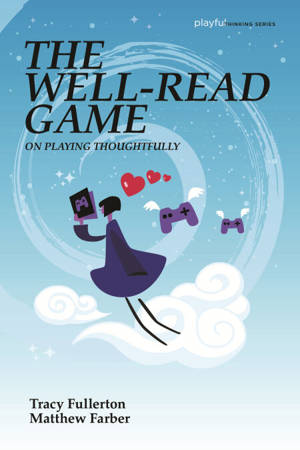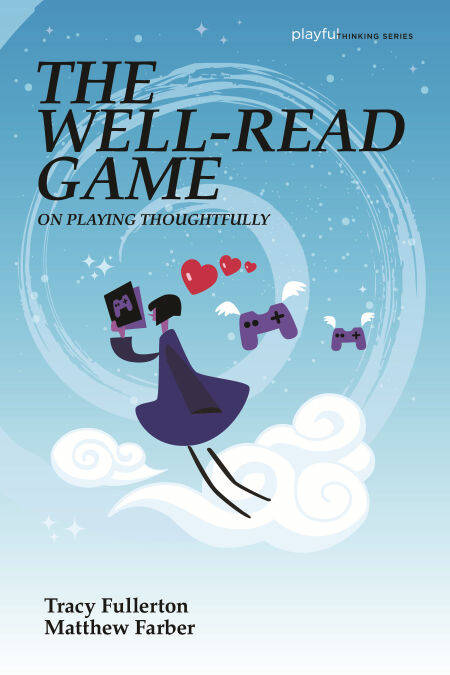
- Retrait gratuit dans votre magasin Club
- 7.000.000 titres dans notre catalogue
- Payer en toute sécurité
- Toujours un magasin près de chez vous
- Retrait gratuit dans votre magasin Club
- 7.000.0000 titres dans notre catalogue
- Payer en toute sécurité
- Toujours un magasin près de chez vous
39,42 €
+ 39 points
Description
How players evoke personal and subjective meanings through a new theory of player response.
In The Well-Read Game, Tracy Fullerton and Matthew Farber explore the experiences we have when we play games: not the outcomes of play or the aesthetics of formal game structures but the ephemeral and emotional experiences of being in play. These are the private stories we tell ourselves as we play, the questions we ask, and our reactions to the game’s intent. These experiences are called “readings” because they involve so many of the aspects of engaging with literary, cinematic, and other expressive texts. A game that is experienced in such a way can be called “well-read,” rather than, or as well as, “well-played,” because of the personal, interpretive nature of that experience and the way in which it relates to our reading of texts of all kinds.
The concept of the “well-read game” exists at the convergence of literary, media, and play theories—specifically, the works of Louise Rosenblatt’s reader-response theory, Brian Upton’s situational game theory, Tracy Fullerton’s playcentric design theory, and Bernie DeKoven’s well-played game philosophy. Each of these theories, from their own perspective, challenges notions of a separate, objective, or authorial meaning in a text and underscores the richness that arises from the varied responses of readers, who coauthor the meaning of each text through their active engagement with it. When taken together, these theories point to a richer understanding of what a game is and how we might better value our experiences with games to become more thoughtful readers of their essential meanings.
In The Well-Read Game, Tracy Fullerton and Matthew Farber explore the experiences we have when we play games: not the outcomes of play or the aesthetics of formal game structures but the ephemeral and emotional experiences of being in play. These are the private stories we tell ourselves as we play, the questions we ask, and our reactions to the game’s intent. These experiences are called “readings” because they involve so many of the aspects of engaging with literary, cinematic, and other expressive texts. A game that is experienced in such a way can be called “well-read,” rather than, or as well as, “well-played,” because of the personal, interpretive nature of that experience and the way in which it relates to our reading of texts of all kinds.
The concept of the “well-read game” exists at the convergence of literary, media, and play theories—specifically, the works of Louise Rosenblatt’s reader-response theory, Brian Upton’s situational game theory, Tracy Fullerton’s playcentric design theory, and Bernie DeKoven’s well-played game philosophy. Each of these theories, from their own perspective, challenges notions of a separate, objective, or authorial meaning in a text and underscores the richness that arises from the varied responses of readers, who coauthor the meaning of each text through their active engagement with it. When taken together, these theories point to a richer understanding of what a game is and how we might better value our experiences with games to become more thoughtful readers of their essential meanings.
Spécifications
Parties prenantes
- Auteur(s) :
- Editeur:
Contenu
- Nombre de pages :
- 244
- Langue:
- Anglais
- Collection :
Caractéristiques
- EAN:
- 9780262382915
- Date de parution :
- 24-03-25
- Format:
- Ebook
- Protection digitale:
- Adobe DRM
- Format numérique:
- ePub

Les avis
Nous publions uniquement les avis qui respectent les conditions requises. Consultez nos conditions pour les avis.






